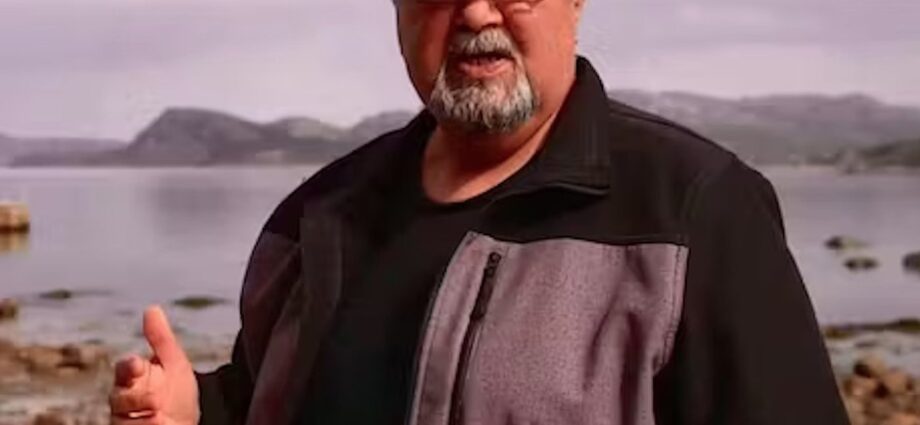
By Peter Jackson, Local Journalism Initiative Reporter, The Telegram
November 8, 2023
Some may wonder why government leaders keep offering apologies for the legacy of residential schools, but Joe Dicker can assure you the message still doesn’t seem to be getting through to everyone.
When the abandoned building that housed the former Moravian school in Nain was finally torn down last year, the town’s mayor says, a woman called him from Corner Brook.
“(She) didn’t understand the reason why closure was called for,” Dicker told The Telegram Monday, Nov. 6. “She didn’t understand what the children went through. She said we should be grateful that we had an education.”
Dicker, a survivor of the system, says he still gets that attitude from people on occasion.
“They don’t understand our way of life up here. All our language was lost, our whole culture was lost because of the practices of the teachers at that time,” he said.
“I told her that’s her opinion. I said, ‘Just come and be in our shoes for a few weeks, you would understand and experience the loss of dignity of the person being robbed of their culture and language.’ And she couldn’t get it.”
Action needed
Dicker was reacting to an apology tour conducted by Premier Andrew Furey last week, in which the premier visited five Inuit communities along the Labrador coast over three days, finishing up in Happy Valley-Goose Bay on Friday.
The promise of an official apology was made by former premier Dwight Ball in the wake of a similar apology from Prime Minister Justin Trudeau in 2017, but the apology was delayed for a couple of years and then the COVID-19 pandemic got in the way.
Dicker says the premier’s gesture was taken well by many, and often elicited an emotional response.
But there were those in Nain and elsewhere who feel it rang a little hollow, he said.
“A lot of them didn’t feel that the apology as a whole was enough,” Dicker said. “Some of them couldn’t make it because of their health. And some survivors have passed on.”
Dicker said he and many others are more interested in actions than words.
He said health care in the region is substandard, and food and transportation remain a significant challenge.
He said the cancellation of a supply subsidy four years ago was justified because of the completion of the Trans-Labrador Highway.
“That’s bullshit,” he said, pointing out there is still no road along the northeast coast.
The province announced this year it would look into the feasibility of such a ground route, but the region still only remains accessible by boat in the summer or by air and snowmobile in the winter.
“Going by air costs an arm and a leg,” Dicker said.
Questioning the source
Dicker says that for many people, skepticism about Furey’s tour wasn’t so much centred on the apology but on the source.
“Some of them feel it’s the Moravians and the Grenfell Mission that should have been apologizing,” he said.
Norman Anderson is one of them.
Anderson, who is in his 80s, says Newfoundland and Labrador wasn’t even a province when he was wrenched from his family to attend the Moravian school in Nain in the 1940s.
“It’s the (British) Commonwealth who should be apologizing,” he said.
Anderson decided not to attend the apology in Nain.
As for the Moravian church, it did issue an apology of sorts, but only after first resisting calls to allow the old schoolhouse to be demolished.
Subscribe to our newsletter.
In a letter to the town last year, the church said it wanted to “acknowledge that (the building’s) presence is a painful reminder to some of their experiences while attending this institution,” and that it wanted to “honour their wishes in the spirit of reconciliation and a desire to promote healing.”


